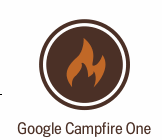Thursday, March 18, 2010
Virgin America: Hello MCO & YYZ, So Long SNA
Toronto makes a lot of sense for VA - good demographics, little low-fare competition - a great extension of the brand.
Orlando, while a huge destination, isn't exactly known for high yields. It is also the heart of both JetBlue (which runs a large operation at MCO) and AirTran (which also runs a large operation and is headquartered there.)
So, how long before JetBlue announces service from SFO and LAX to Orlando? Last time, it only took a day for JetBlue to announce overlapping service from LAX and SFO to Fort Lauderdale as we discussed.
And so much for Orange County (SNA) - San Francisco (SFO) flights which we chronicled here. While Virgin did succeed in running American out of town, apparently Southwest and long-time incumbent United were too much....
Pay Now or Pay Later: A New Choice at Priceline - And the Next OTA Battleground?
 Users are then given the option of paying upfront or at time of booking when they click to select the hotel.
Users are then given the option of paying upfront or at time of booking when they click to select the hotel.

And this isn't a matter of simply including traditional agency inventory sourced via a Global Distribution System (GDS) such as Sabre or Travelport. This stroke of genius is actually the latest convergence of booking.com inventory with Priceline.com non-opaque (i.e. Travelweb) inventory.
Booking.com's rapidly expanding inventory base within North America now enables Priceline to offer multiple sources of inventory with multiple payment options for the same hotel. At the same time, as more hotels roll out, Priceline has removed one of the largest perceived negatives to booking with an OTA - upfront payment.
The gap between supplier.com and online travel agencies continues to close. First booking fees fall, then change and cancel penalties disappear and now this latest game-changer.
Monday, March 15, 2010
Continental: No More Free Lunch - Probably for the Best
Clever Continental advertising pieces like these will need to be re-worked a bit but free (airline) food can't be as big of a draw as other airline purchasing influencers such as price, schedule and frequent flyer program.
Back when other airlines began imposing baggage fees, Continental was among the last of the airlines (save Southwest of course) that opted to begin charging for checked baggage. We are told that Continental was looking for signs of share shift away from airlines that were adding baggage fees. Alas, no share shift was apparent so ultimately Continental decided to match the other mainline hub and spoke carriers and enjoy the revenue benefit.
Similarly, it has probably become impossible for Continental to show any share-shift (and resulting revenue gain) from continuing to serve food. In fact, they may have actually been at a disadvantage as some carriers have started to really sell some good food.
From recent first-hand experience, we can report that while free food on CO was nice, it was certainly nothing to write home about. In fact, some of the buy-on-board food has become so good (particularly on Delta) we'd actually prefer to pay a few extra bucks and actually get something that is fresh, healthy and tasty. Or not.
So, we'll see some costs come out and, hopefully, some nice ancillary revenue gains - Continental is projecting about $35M in improved revenue and cost savings - and that's a lot of sandwiches.
Thursday, March 11, 2010
Getaroom.com Tries Print - WSJ no less
 We were a bit surprised to be leafing through yesterday's Wall Street Journal and find the ad (left) for getaroom.com in Section A. No, in the Personal Journal (Section D) where most travel related advertising and leisure oriented stories end up, but actually in meaty section A.
We were a bit surprised to be leafing through yesterday's Wall Street Journal and find the ad (left) for getaroom.com in Section A. No, in the Personal Journal (Section D) where most travel related advertising and leisure oriented stories end up, but actually in meaty section A.First take is, wow, interesting audience to go after - would not expect the average WSJ reader to be drawn to any hotel in NYC that is selling for $99. Most WSJ readers are typically Four Seasons types rather than Four Points. We'll grant getaroom.com that maybe the economy and TARP may be pushing WSJ readers down-market so maybe this makes sense.
Second thought is: "Wow, haven't we seen that bell-hop before?" Like so many parts of getaroom.com (including the founders!) it is a Hotels.com do-over.
Lastly, we'd like to actually see some examples proving the "Up to 50% off other leading websites" claim - either in print or on the website. If the deals are that good, lets see some, please?
Irony - San Diego CVB: Expedia "Partner of the Year" While City Sues Expedia Over Occ Taxes
The press release continues:
"'As a promotion partner, Expedia not only grew San Diego's room nights year-over-year by 26 percent, but in these tough economic times they were able to grow revenue by 11 percent – exceeding ROI estimates and generating a significant return on investment of 125 to 1,' said Joe Terzi, President and CEO of the San Diego CVB. 'Serving many different consumer segments—from families booking a summer vacation to individuals arranging a quick weekend getaway—Expedia gives us a highly effective way to share San Diego's message to a broad audience of travel shoppers and potential visitors.' "
Hmmm. Interesting that the CVB is so enthusiastic given that the City of San Diego is one of the many municipalities currently suing Expedia and the other major online travel agents. An administrative hearing has been held on the case but before any decision was rendered, the Judge in the similar Anaheim case rendered her opinion in favor of the the OTAs.
And just how does the San Diego CVB receive most of its funding? You guessed it, occupancy taxes. According to the CVB's own website, "the majority of funding is derived from San Diego Tourism District Assessment Funds." Again from the CVB's own website, the current transient occupancy tax is 10.5% in the City of San Diego. There is also an additional 2% occupancy tax levied for the San Diego Tourism Marketing District. If you enjoy reading tax code, here is the actual language from the City of San Diego's municipal code.
Anyone who has been following the ongoing saga of the tax lawsuits against the OTAs knows that the issue is if the taxes above are levied on the net or wholesale rate actually charged by the hotel to the OTA or the marked-up, retail rate sold by the OTA.
So now we have an interesting situation: The very agency (the CVB) charged with promoting San Diego (whose funding comes from the occupancy taxes in question) is holding out an OTA (Expedia) as a great partner. At at the same time the city of San Diego is suing Expedia et al for non-payment of occupancy taxes that largely fund the CVB!
So, San Diego (and other cities) which is it?
Tuesday, March 9, 2010
Google: Organize the World's Information; TripIt: Google 's App Pick For Travel Organization

Today, at Google's Campfire One "mega-do" TripIt's new Groups App was the only travel app included in the new Google Apps Marketplace.
TripIt Groups brings transparency to business travel allowing registered users (who choose to share their plans) to collaborate on their travel plans. The product provides business travelers within a company, division etc an easy way to see when, where and how fellow employees are traveling.
In keeping with Google's mission to organize the world's information, TripIt is Google's choice for organizing travel.
Internet Access at 4/5 Star Hotels: Getting Closer to Free (Finally)
Four Points, Courtyard, Fairfield, Hyatt Place, Holiday Inn as well as newer brands such as Aloft and Indigo have all offered free HSIA to all guests for some time. However, their higher tier cousins such as Westin, Sheraton, Hyatt, Marriott and Intercontinental have long charged at least $9.95 (per day!) or more for the service.
Why?
Well, because they can. With a majority of their travelers staying on business where someone else is picking up the tab, upper-tier hotels have been able to get away with this. In contrast to the value oriented chains where the target is more leisure and small business clients (who may be paying the fees themselves) the big guys are targeting large corporate and group customers.
But holes are appearing in the "everyone pays for HSIA mantra"
During the peak of the lodging boom 2-3 years ago when hotels commanded pricing power, the upper-tier chains largely refused to negotiate on HSIA access charges for large corporate buyers. It was a sacrosanct rule at many chains to refuse to give it away as part of a negotiation.
Oh how the world has changed. Recent discussions with several of the largest corporate travel buyers have shown that free HSIA is now a very common component of rate negotiations. A quick check of many large corporate rates at several metro 4/5 star hotels yields similar results.
Don't work for a major corporation but have hotel loyalty program status? Free HSIA may be in store for you as well.
Hyatt started the trend last year when they began offering free HSIA to their top-tier (Diamond level) Gold Passport members globally.
Starwood fell into line beginning March 1st for Platinum members, again on a global basis.
And today, Marriott announced a similar program for not just top-tier members, but mid-tier members as well. Marriott, while covering more members, covers significantly fewer hotels however. Marriott's offering does not include hotels outside of the U.S. and Canada or even Marriotts located in Hawaii. (Maybe Marriott is trying to tell us something when we are on vacation?)
So, will HSIA revenues at upper-tier hotels go the way of phone revenues (picked up the phone in your room recently?) Between the growth of wireless cards and relentless competitive pressure, we think this revenue stream is toast. Even when lodging comes back in 2011, we doubt any of the chains will be able to convince customers that they should start paying for HSIA again. And by then, we may not be traveling with laptops anyway.....

Sunday, March 7, 2010
Allegiant tries 757s - Aloha Hawaii
Allegiant plans to begin flying them later this year from West Coast cities to Hawaii which currently lack nonstop service to the islands. Don't expect to see Allegiant announcing LAX-HNL service - while LAX is a focus city for Allegiant, we expect them to enter the Hawaiian market from smaller cities with less than daily service as is their trademark. We'd expect new service from places like Bellingham, Fresno, Eugene and the like.
This is clearly wonderful news for the Hawaiian hotel market given the massive over-capacity that currently exists. And we expect Allegiant to do well - given the softness in the market, they will be able to negotiate significant discounts on hotels and attractions which will translate into better prices for their consumers and better margins for ALGT.
Clearly, a new market and fleet type is not without risk but this is a company that knows the leisure business better than anyway. It is more of the same formula, albeit with a new aircraft type, that has served them so well in Las Vegas, Orlando and other key leisure destinations.
Anyone who thinks of ALGT as an airline has it all wrong - this is a leisure powerhouse that just happens to be required to file monthly statistics with the DOT.....
Friday, March 5, 2010
Orbitz Re-Tunes the Flight Matrix
Traditionally, Orbitz has returned a myriad of flight options using the power of ITA to build numerous multi-carrier and multi-leg trips. While flights from New York to Boston via Buffalo may have been not only scenic but cheaper (and resulted in a few extra frequent-flyer miles) the results may have been overwhelming for some consumers.
Orbitz, at least in certain market/fare combinations, has now changed the display to initially reflect only nonstop pricing:
 The result is a faster return of the most relevant flights. Messaging allows users to drill down deeper into additional flights should they care to explore other options:
The result is a faster return of the most relevant flights. Messaging allows users to drill down deeper into additional flights should they care to explore other options:
 Orbitz CEO Barney Harford commented via email that the new format was part of "a relentless focus on speed" for the site. He continued, "The rest of the site is also getting a lot faster, but it is not as immediately recognizable; this is a very visible example."
Orbitz CEO Barney Harford commented via email that the new format was part of "a relentless focus on speed" for the site. He continued, "The rest of the site is also getting a lot faster, but it is not as immediately recognizable; this is a very visible example."
Thursday, March 4, 2010
Priceline: "Name Your Own Price" Takes a Vacation
Yes, you read that right, a posted price. In the example below, Priceline is offering a 4 Star hotel room in Boston without any bidding. Not so much "Negotiation" here - just "Big Deals"
 Scrolling down, a user can simply enter their credit card details and buy - on the same page. No bidding, no guessing. Again, the bid may not be accepted so it isnt fool-proof.
Scrolling down, a user can simply enter their credit card details and buy - on the same page. No bidding, no guessing. Again, the bid may not be accepted so it isnt fool-proof.Priceline is pitching this as a limited time offer - but we've seen this movie before. Remember the first OTA to cut fees? Yep, that was Priceline and that was a "limited time" offer as well.
It would appear this business model simplification is a direct swipe at opaque competitor Hotwire.com (full disclosure: I formerly worked there) which has always used a similar no-bidding model.
And this will also take some of the gas out of "cheater" websites like www.biddingfortravel.com which have long suggested bidding price points for use on Priceline.com. Of course, biddingfortravel.com also posted which hotels actually fulfilled the bids - and nothing is changing regarding opacity during the booking process.
We'll see where this goes, but we doubt this is any more "temporary" than booking fee rollbacks were over a year ago.




